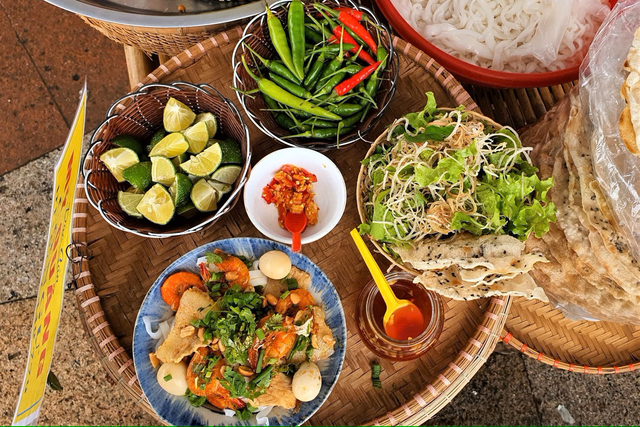Local noodle soup designated as national intangible cultural heritage
VGP - The Ministry of Culture, Sports, and Tourism has officially recognized "Pho Nam Dinh" (Nam Dinh-style pho) and "My Quang" (Quang Nam-style noodle soup) as national intangible cultural heritages.

My Quang (Quang Nam-style noodle soup)
"Pho Nam Dinh" has been categorized under the domain of folk knowledge, meeting the criteria of representation of community and local identity, reflection of cultural diversity and human creativity passed down through generations, possibility of revival and long-term existence, and the local community's consensus, voluntary nomination, and commitment to safeguarding.
The northern province of Nam Dinh is known as the birthplace of Pho, a staple in Vietnamese culinary culture that is beloved both in Viet Nam and worldwide.
Over time, the dish has become a symbol of pride for locals for its unique qualities in every preparation stage – from selecting ingredients and crafting the distinctive noodles to the careful cooking process ensuring each bowl maintains its authentic flavor and nutritional value.
The recognition is a crucial step towards the Government's proposal to UNESCO, seeking its inclusion of Pho in the Representative List of the Intangible Cultural Heritage of Humanity.
On this occasion, Minister of Culture, Sports and Tourism Nguyen Van Hung also signed a decision to include the folk knowledge of My Quang of Quang Nam province in the List of national intangible cultural heritage.
This decision followed a formal request from the provincial authorities on August 10 last year.
According to the Quang Nam People's Committee, the craft of making My Quang is acknowledged for encapsulating the distinctive culinary values of the area.
The dish evolved alongside the southward migration of settlers, adapting to available ingredients and thus contributing to its rich and varied flavors.
This versatile dish highlights the folk culinary culture of the land, appealing to a broad range of tastes and embodying the local history and folk knowledge.
Previously, the website known as the "world culinary map" Taste Atlas released a list of 100 best Vietnamese dishes for international diners to experience, including My Quang./.
